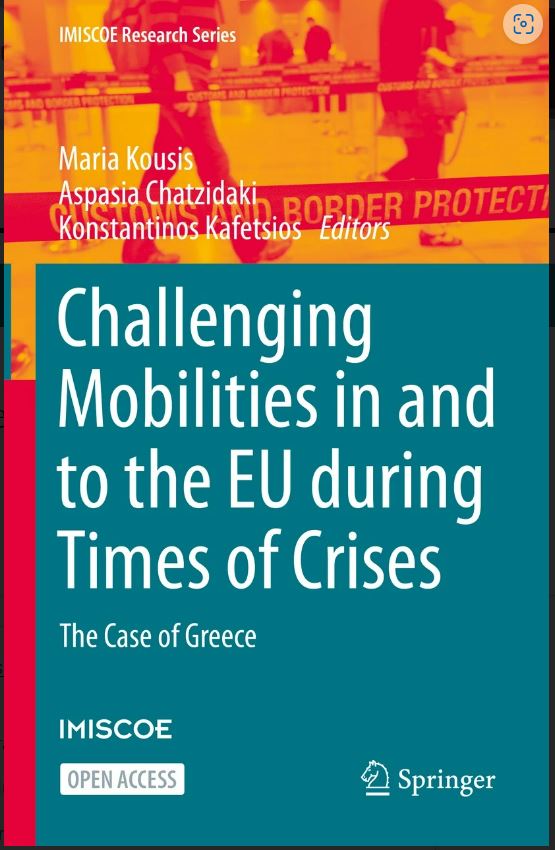Challenging Mobilities in and to the EU during Times of Crises
The Case of Greece

The first international volume of the UCRC (ΚΕΜΕ) has just been published by Springer Nature (IMISCOE Research Series).
The origin of this volume goes back to the decision of the 2016–2021 Board of the University of Crete Research Centre for the Humanities, the Social and Education Sciences (UCRC) to organize its first conference entitled ‘Migrations: Interdisciplinary Perspectives’ in Rethymno on October 2019, in which the contributors of this volume presented their work.
The authors, from the fields of philosophy, anthropology, sociology, economics, political science, geography, linguistics, law, health sciences and mathematics offer new analyses and data on a diverse range of mobility-related topics concerning the new Greek emigrants as well as refugees in Greece.
First, chapters on mobility issues regarding the new emigration wave from Greece centre on decision-making, related benefits from emigrants, and education-related issues. Secondly, examinations of host receptivity towards refugees in Greece focus on attitudes as well as social distance and national stereotypes. Third, solidarity and claims-making analyses unravel aspects of a contested solidarity in the country, as well as migrants’ protests and cosmopolitanism issues. Fourth, investigations of transformations in the governance of refugee and migrant mobilities lead to theoretical and political reflections on how the country experienced crises.
Finally, analyses on durable integration challenges centre on the evolution of integration and migration policy for Greece as well as on those posed for the municipality of Athens and the Covid-19 pandemic. In an era of continuing crises deeply affecting migration, as witnessed also in the unprecedented wave of refugees due to the war in Ukraine, the volume aims to become a unique resource for students and scholars from the above disciplines, but also for policymakers, working on crises and migration within and beyond Europe.
